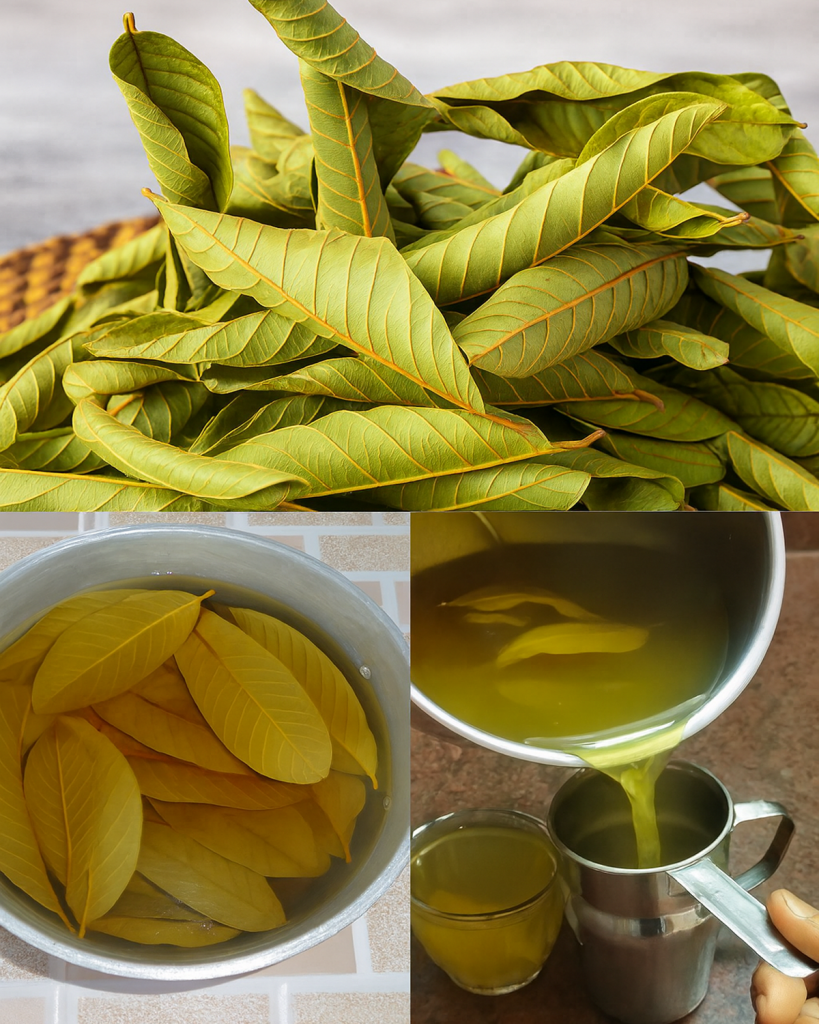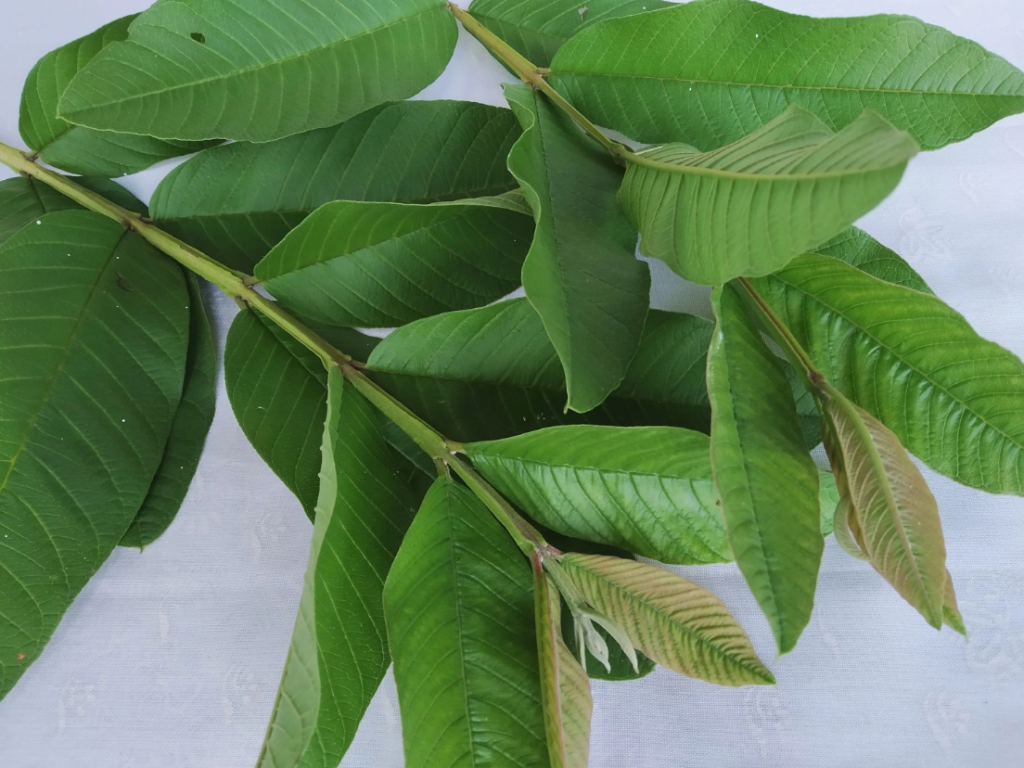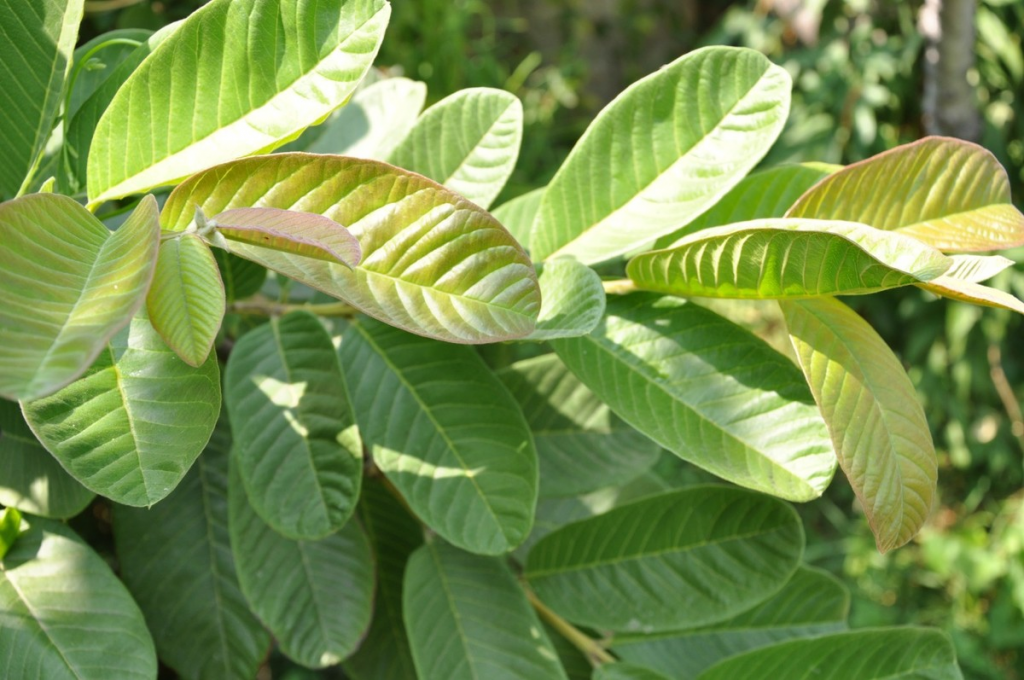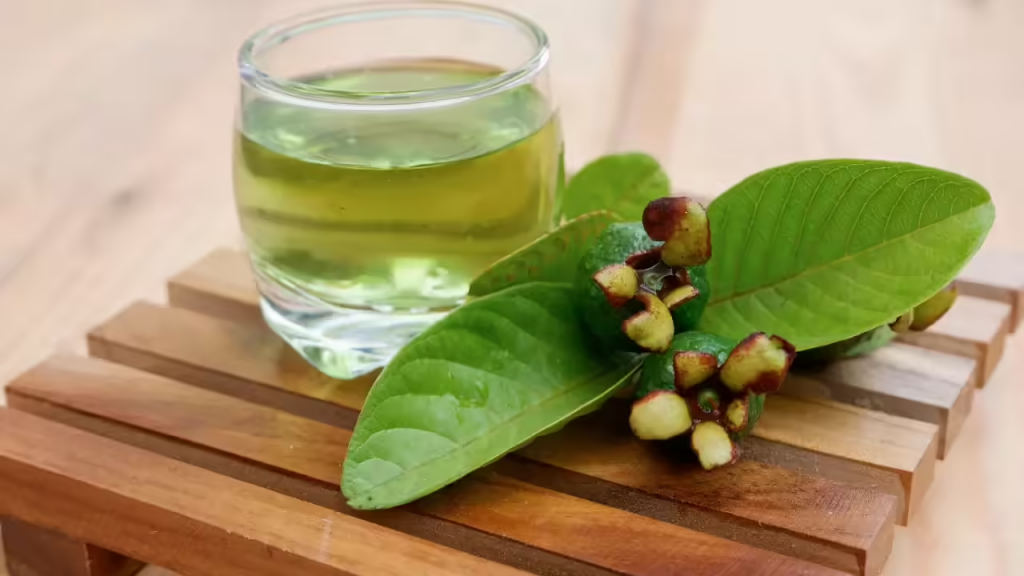Did you know that while guava fruit is celebrated worldwide, its leaves carry an equally impressive legacy in traditional wellness practices? In fact, in many rural areas across Asia, Africa, and Latin America, guava leaves have been brewed into teas, crushed into poultices, and used for generations as natural remedies. Yet, despite their availability, most people in urban settings dismiss guava leaves as nothing more than garden waste.
On our fanpage, one of the most common questions we hear is: “What everyday plants are we overlooking that could support our health?” Guava leaves are a prime example. They grow abundantly in the countryside, require little care, and yet very few realize their potential.
This article uncovers the hidden power of guava leaves: their nutritional compounds, traditional uses, scientific perspectives, practical ways to prepare them, and important safety guidelines. By the end, you’ll understand why this humble leaf deserves a place in your wellness routine and how to make the most of it.

The History and Tradition of Guava Leaves
Guava (Psidium guajava) originates from Central America but has spread widely across tropical and subtropical regions. While the fruit is prized for its sweet flavor and vitamin C, the leaves have a rich history in folk medicine.
Cultural Practices Around the World
- Asia: Guava leaf tea is consumed to ease digestion and soothe the stomach.
- Latin America: Crushed leaves are applied externally for minor wounds and skin irritation.
- Africa: Infusions are used to freshen breath and support oral hygiene.
- Caribbean: Leaves are boiled in baths for relaxation and cleansing rituals.
These traditional practices highlight the versatility of guava leaves beyond simple nutrition.
Nutritional and Phytochemical Profile of Guava Leaves
Modern research confirms that guava leaves are packed with bioactive compounds.

| Compound | Potential Role |
|---|---|
| Flavonoids (quercetin) | Antioxidant, anti-inflammatory properties |
| Tannins | Digestive support, astringent qualities |
| Vitamin C | Immune defense, collagen production |
| Beta-sitosterol | Plant sterol that may support cholesterol balance |
| Essential oils | Antimicrobial activity |
This unique mix explains why guava leaves are valued in both traditional remedies and modern herbal supplements.
Potential Wellness Benefits of Guava Leaves
While guava leaves are not a cure-all, they may provide supportive benefits when used properly.
Digestive Support
Guava leaf tea is traditionally consumed after meals to ease bloating, diarrhea, or indigestion. Tannins in the leaves have natural astringent properties.
Immune and Antioxidant Defense
High in vitamin C and flavonoids, guava leaves may help neutralize free radicals and support the immune system.
Oral Health
Chewing fresh guava leaves has been a folk remedy for fresh breath and gum health. Today, guava leaf extracts are included in some natural mouthwashes.

Blood Sugar Support
Preliminary research suggests guava leaf extract may support healthy blood sugar levels by slowing carbohydrate absorption.
Skin and Hair Wellness
Applied topically, guava leaves are used in some cultures to soothe irritation, acne, or dandruff, thanks to their antimicrobial compounds.
Practical Ways to Use Guava Leaves
Guava leaves can be used in simple, safe, and practical ways at home.
Guava Leaf Tea
Ingredients:
- 5–7 fresh or dried guava leaves
- 2 cups water
- Honey or lemon (optional)
Instructions:
- Wash leaves thoroughly.
- Boil in water for 10 minutes.
- Strain and drink warm.

Mouth Rinse
Boil guava leaves, let the liquid cool, and use as a mild natural mouthwash.
Skin Application
Crush fresh leaves into a paste and apply to minor skin irritation. Always test on a small area first.
Herbal Bath
Boil a handful of guava leaves in a pot of water, strain, and add the liquid to bathwater for a soothing soak.
Recipes and Variations
Refreshing Guava Leaf and Mint Tea
- Boil guava leaves and fresh mint together.
- Add honey for a cooling, aromatic tea.
Guava Leaf and Ginger Infusion
- Combine guava leaves with sliced ginger.
- Drink after meals for digestive support.
Guava Leaf Hair Rinse
- Boil guava leaves, let cool, and rinse hair after shampooing.
- Believed in folk practice to reduce dandruff and strengthen hair.

A 7-Day Guava Leaf Challenge
Day 1: Start with one cup of guava leaf tea in the evening.
Day 2: Use a guava leaf mouth rinse in the morning.
Day 3: Add ginger to your guava tea for extra warmth.
Day 4: Apply a guava leaf paste to minor skin blemishes.
Day 5: Take a guava leaf herbal bath for relaxation.
Day 6: Brew guava leaf and mint tea for afternoon refreshment.
Day 7: Reflect on your experience and note any changes in digestion or overall well-being.
Myths and Facts About Guava Leaves
“Guava leaves can cure all diseases.”
False. They may support wellness but are not miracle cures.
“Eating guava fruit is the same as using the leaves.”
Not true. The fruit and leaves have different compounds and uses.
“You can eat guava leaves raw.”
Technically possible, but they are very bitter. Teas and infusions are more common.
“Guava leaf remedies work instantly.”
Results vary. Consistency over time is more effective.

Safety and Precautions
- Guava leaf tea is generally safe in moderate amounts.
- Pregnant or breastfeeding women should consult a healthcare provider before use.
- People with chronic conditions or on medication should check with a doctor first.
- Topical use may cause irritation in sensitive individuals—always patch test.
Conclusion
Guava leaves are an overlooked treasure, growing abundantly in backyards and countrysides worldwide. From digestive comfort to oral health and skin support, their potential uses span centuries of tradition and growing scientific interest.
By learning how to harvest and prepare guava leaves properly, you can rediscover their value and incorporate them into your daily wellness rituals. Sometimes, the most powerful remedies are growing quietly right outside your door.
FAQ
Q1: Can I drink guava leaf tea every day?
Yes, moderate daily consumption is considered safe for most people.
Q2: How do I store guava leaves?
You can air-dry them and store in a sealed jar for up to several months.
Q3: Do guava leaves help with weight loss?
They may support digestion and blood sugar balance, but lifestyle habits matter most.
Q4: Can children drink guava leaf tea?
Small amounts may be safe, but consult a pediatrician first.
Q5: Is guava leaf extract stronger than tea?
Extracts are more concentrated but should be used with professional guidance.
*Disclaimer: This article is for informational purposes only. It does not provide medical advice, diagnosis, or treatment. Always consult with a qualified healthcare provider before using guava leaves or making changes to your health routine.




